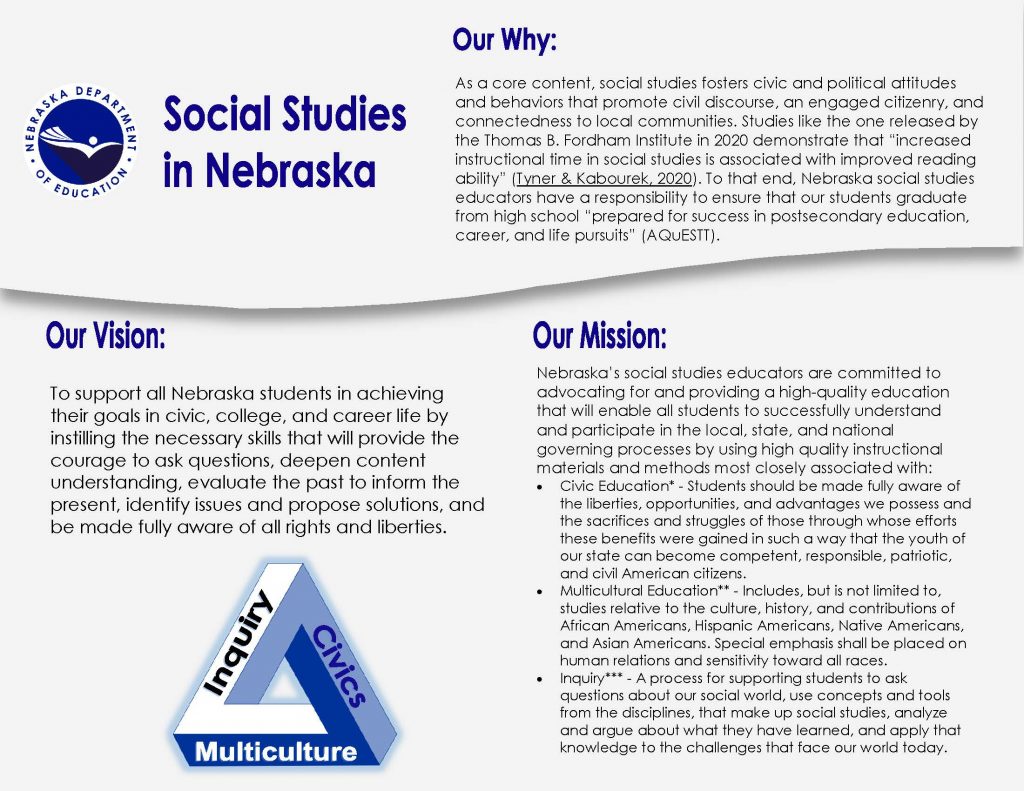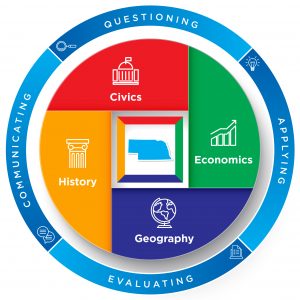Welcome to Social Studies Education
Social Studies is the integrated study of the social sciences and humanities to promote civic competence. Within the school program, social studies provides coordinated, systematic study drawing upon such disciplines as anthropology, archaeology, economics, geography, history, law, philosophy, political science, psychology, religion, and sociology, as well as appropriate content from the humanities, mathematics, and natural sciences. The primary purpose of social studies is to help young people develop the ability to make informed and reasoned decisions for the public good as citizens of a culturally diverse, democratic society in an interdependent world.
National Council for the Social Studies, 1992
Nebraska Social Studies Vision and Mission Statements
Nebraska Social Studies Standards – 2019
Adopted in November of 2019, the Nebraska Social Studies Standards describe the knowledge and skills that students should learn, but they do not prescribe particular curriculum, lessons, teaching
techniques, or activities. These standards create a framework for teaching and learning, and they articulate a trajectory for knowledge acquisition across all grade levels. This ensures that student learning builds on prior knowledge and becomes more in-depth over time. Standards describe what students are expected to know and be able to do, while the local curriculum and instructional materials are used to help students master the standards. Decisions about curriculum and instructional materials are made locally by individual school districts and classroom teachers. The Nebraska Department of Education does not mandate the curriculum or instructional materials used within a local school.
SIT/Frameworks
The Nebraska Department of Education has created two optional educational resources to help with the implementation of the 2019 Nebraska State Social Studies Standards. The first optional resource is the Social Studies Standards Instructional Tool (SIT) which is a spreadsheet containing open educational resources that accompany each K-12 state social studies standard and its indicators. The second optional resource are instructional frameworks that take the social studies standards and put them into a possible structure of a course. Frameworks have been created for 4th Grade Social Studies, 5th Grade US History, 6th Grade Social Studies (Social Studies I), 7th Grade Social Studies-with three possible approaches (Social Studies II), 8th Grade US History, High School Government, High School Economics, High School Geography-with two possible approaches, High School US History, High School World History.







